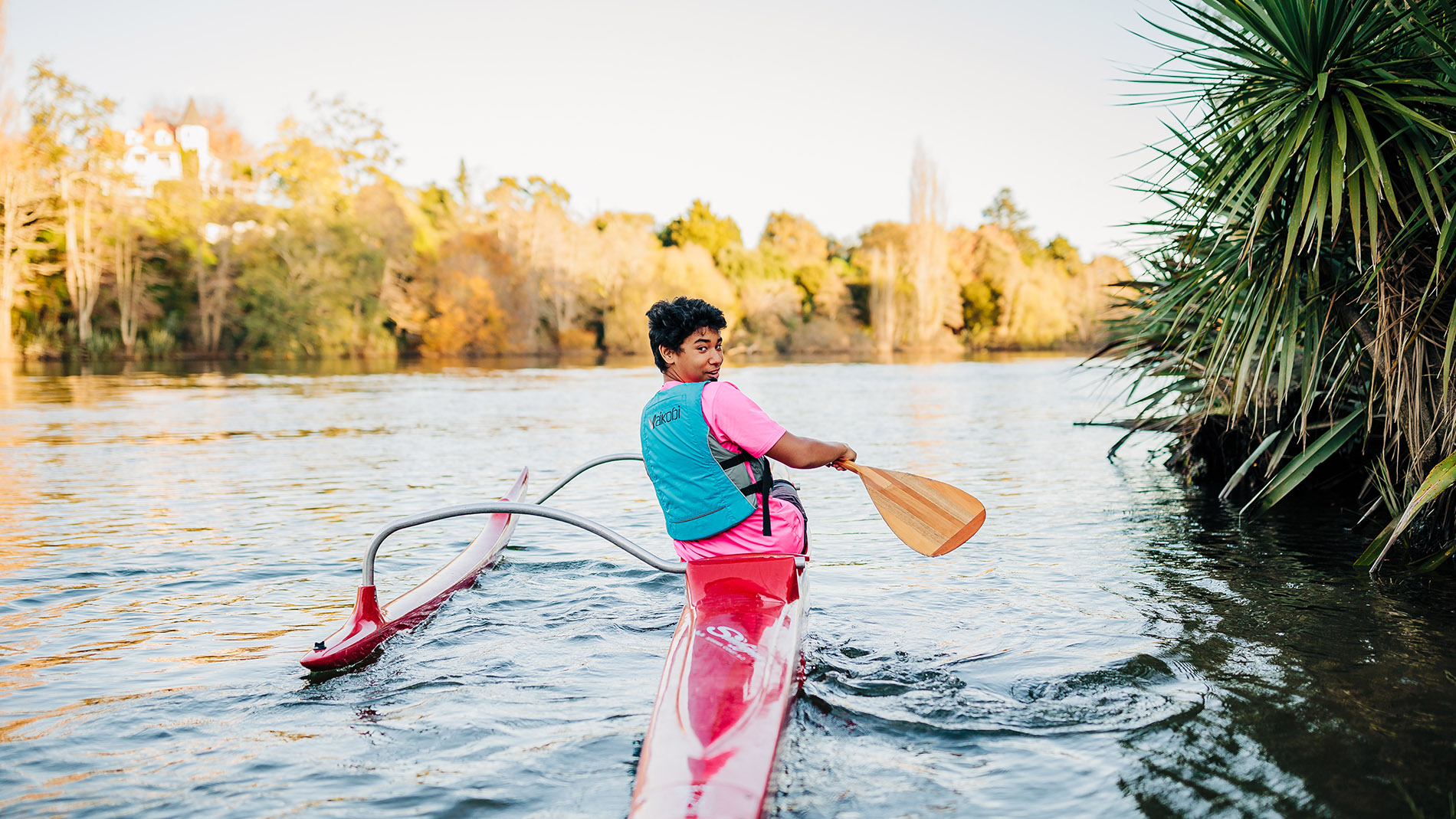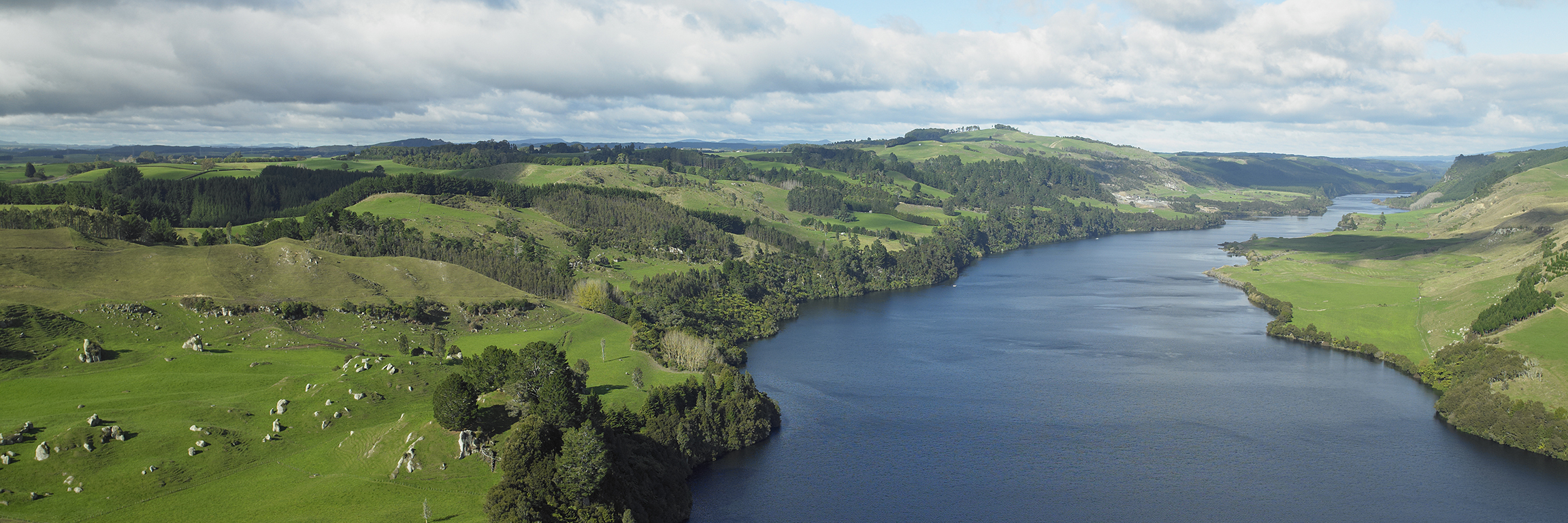Arrangements between the Crown and iwi ushered in a new era of Crown-iwi co-management of the Waikato River catchment. Co-management provides iwi with mechanisms to manage the rivers in the catchment in partnership with central and local government.
The arrangements include joint management agreements (JMAs) between iwi and Waikato Regional Council on the way we will work together and joint management committtees (JMCs) with appointed representatives from both parties. Iwi also develop and implement management plans to address matters of resource management activity of significance within their respective rohe (region).
What’s happened so far

Rangatahi (youth) building confidence through waka ama in the Waikato River.
Legislation was passed in 2010 covering Waikato-Tainui and its involvement in co-managing the Waikato River from the Karāpiro Dam to Te Puaha o Waikato (Port Waikato).
Later that year legislation was passed covering Ngāti Tūwharetoa, Raukawa and Te Arawa river iwi (specifically the hapū Ngāti Tahu - Ngāti Whaoa, Ngāti Kearoa - Ngāti Tuarā and Tūhourangi - Ngāti Wahiao). The co-management arrangements under this bit of legislation covers the Waikato River from Te Toka a Tia near Taupō through to Karāpiro.
A third piece of co-management legislation covering Ngāti Maniapoto - the Ngā Wai o Maniapoto (Waipa River) Act 2012 - came into effect in April 2012. It was the catalyst for Ngāti Maniapoto to enter into co-management arrangements with local government authorities for the Waipā River.
The co-management arrangements include joint management agreements between iwi and the regional council on the way we will work together.
The first of these agreements was signed with Raukawa on 10 May 2012 at Pikitū Marae, south-west of Putaruru, while an agreement with Te Arawa river iwi was signed on 28 August 2012. An agreement for river related lands with Waikato-Tainui was signed on 10 December 2012, and the agreement with Ngāti Maniapoto was signed on Wednesday 3 April at Te Kūiti Pā. An agreement was signed with Waikato-Tainui on 18 June 2013 in Hamilton.
The most recent agreement was signed with Tūwharetoa on 26 February 2018. The signing ceremony was held at Waikato Regional Council.




To ask for help or report a problem, contact us
Tell us how we can improve the information on this page. (optional)